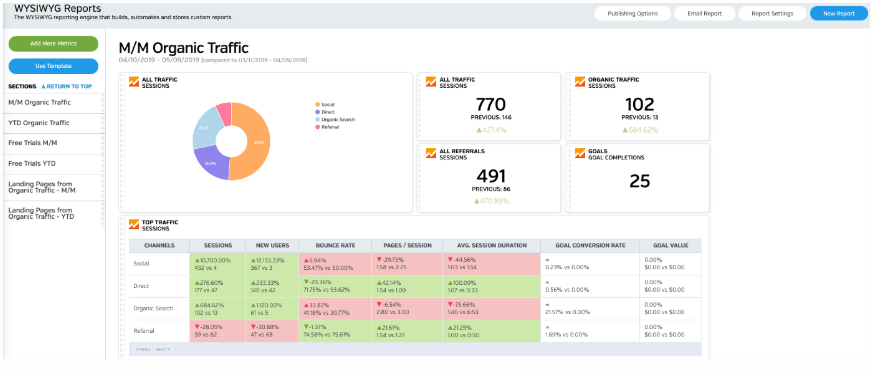You’ll accomplished significantly more by writing your goals down rather than just thinking about them, according Gail Mathhews, Ph.D., Dominican University, who conducted a 149-person study. Additionally, taking the step to keep someone informed about your progress will increase your effectiveness.
Are you keeping your marketing goals to yourself or are you documenting them and being open about your progress? Getting them out of your mind and into a system will make a huge difference.
2. Set Next Steps in Stone
When setting marketing goals, don’t just write a list of all the steps to accomplish your goals. Establish priorities based on what you’ll tackle first, and so on. Discipline is a critical component to goal setting.
According to the Journal of Consumer Research, you’ll be much more likely to complete the larger goal when you know the very next thing to work on. The goal completion rate was higher when a fixed sequence was established. Once you see the path to progress, you experience fewer mental road blocks as a result.
3. Use Metrics as a Safety Net
The secret to knowing when you’re not on target to reaching a goal is to have feedback. “If the goal is to cut down 30 trees in a day, people have no way of knowing whether they are on target unless they know how many trees have been cut,” wrote coauthors of a 2002 review of goal setting research published in the journal, American Psychology.
Luckily marketers can easily track progress by setting up automated reporting. Whether it’s trees or email sign-ups you’re counting, “when people find they are below target, they normally increase their effort or try a new strategy.”
4. Design Triggers for Progress
You’re more likely to complete a goal if you have a predetermined action plan. The trick is to document where, when and how you’ll take a step toward your goal. Once you have a trigger, progress can be automatic rather than requiring memory or will power.
To apply the research to marketing, if your goal is to “interact with more influencers,” design a trigger for that goal: “Every time I schedule a social media post, I’ll visit my Twitter list for influencers, retweet a post, and then ask an influencer a question.”
5. You Got This!
And remember, when you get in a slump and you’d rather browse BuzzFeed quizzes than work on your marketing goals, don’t forget the power of self talk. It may sound breezy, but research provides evidence that simply telling yourself “You can do this!” can make you more effective at reaching your goals. So remember, you got this!
What’s your secret for completing marketing goals?
This Thursday, I’ll discuss the psychology behind educating clients, so stay tuned.

White Labeled and Branded Reports. Drag and Drop Editor. Automate your SEO, PPC, Social, Email, and Call Tracking Reporting.



